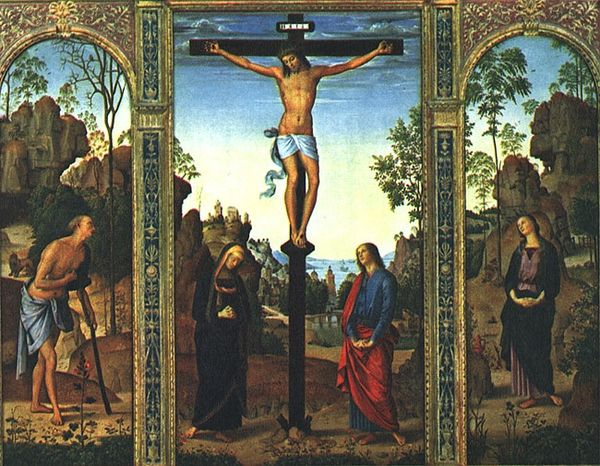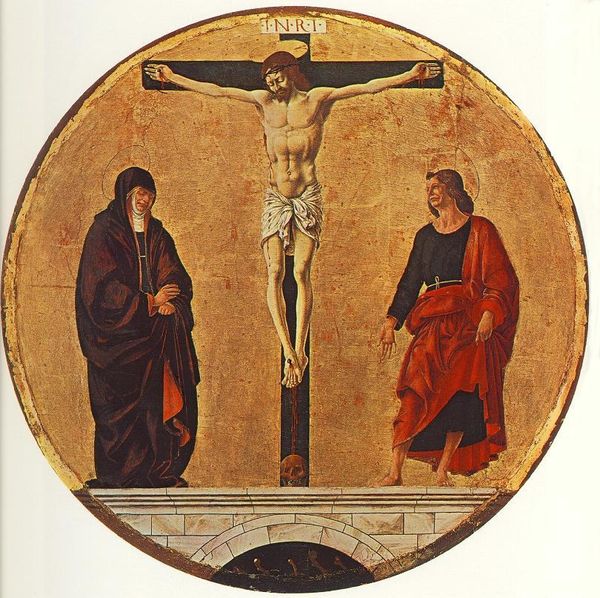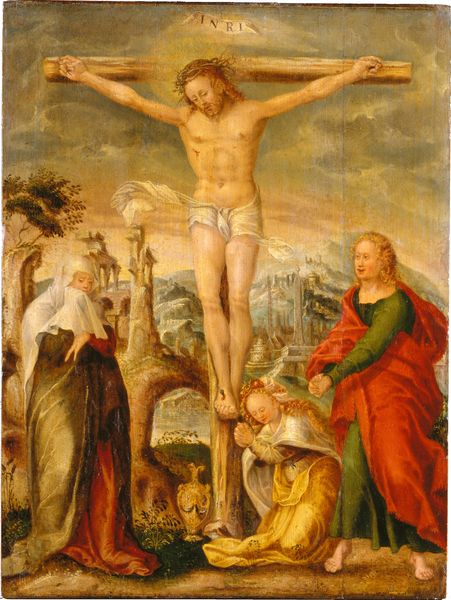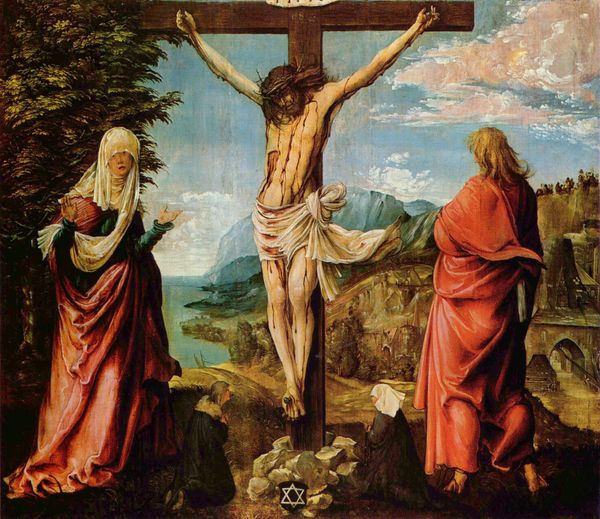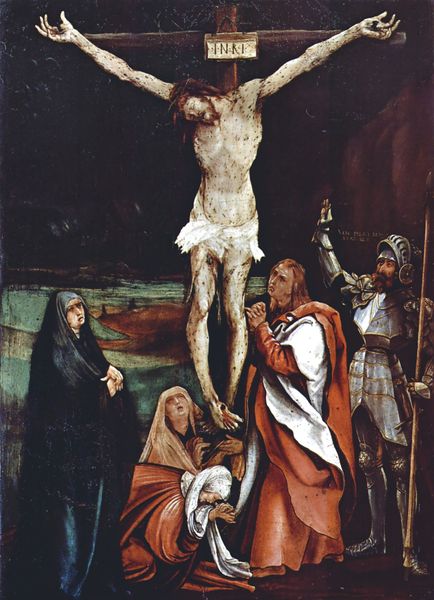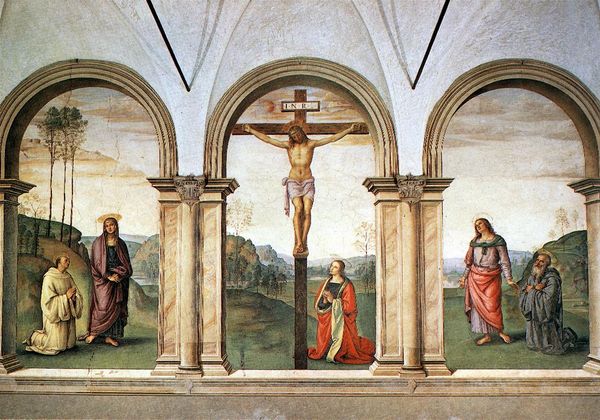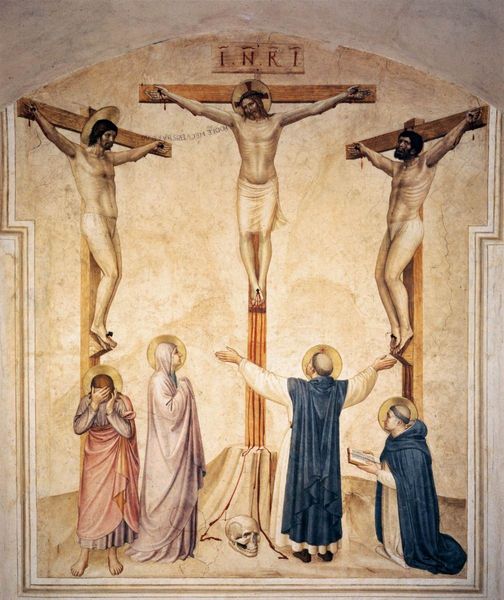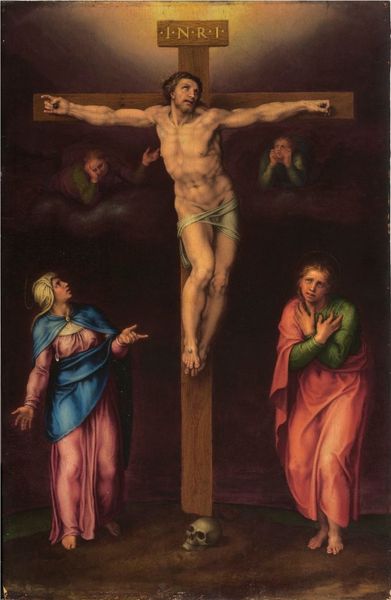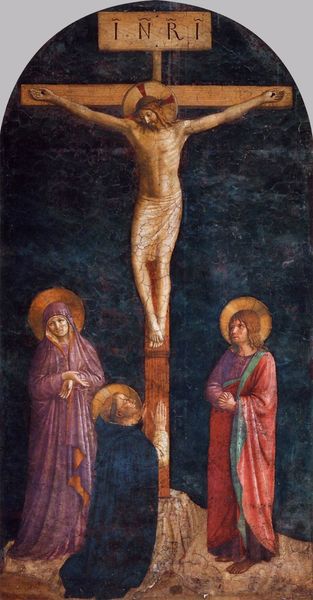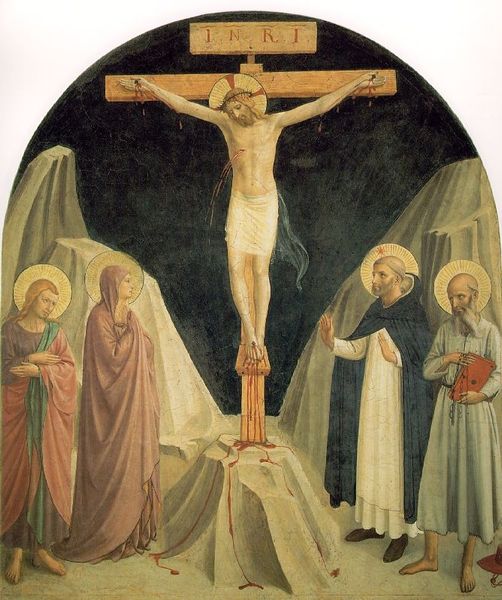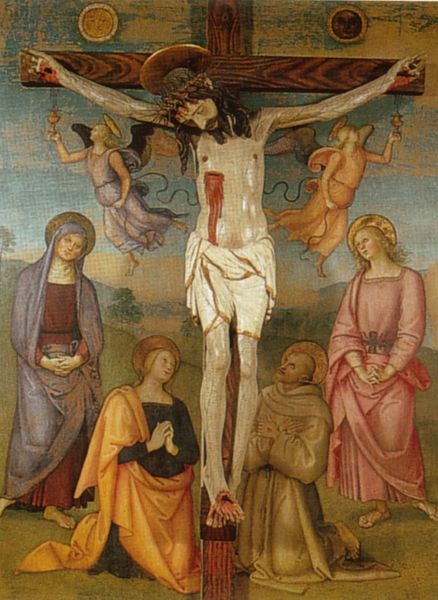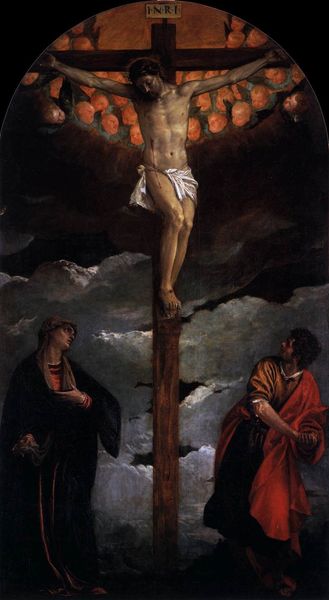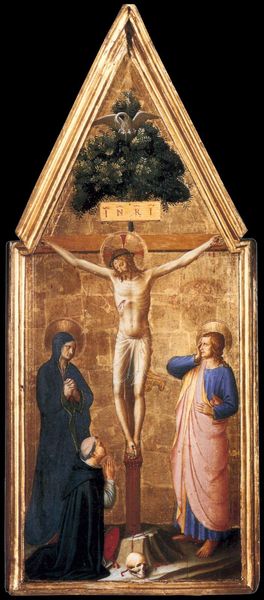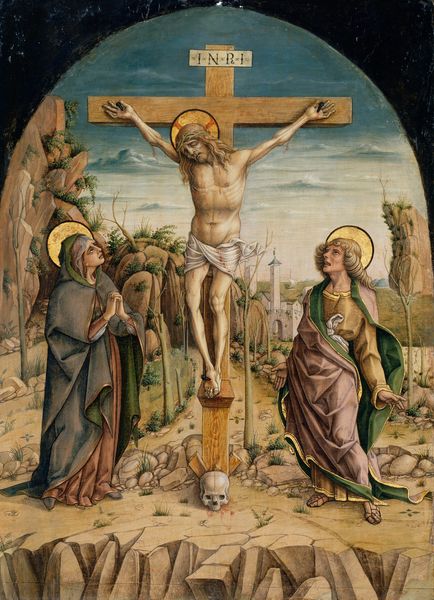
painting, fresco
#
portrait
#
high-renaissance
#
painting
#
landscape
#
figuration
#
fresco
#
jesus-christ
#
cross
#
christianity
#
crucifixion
#
history-painting
#
italian-renaissance
#
watercolor
#
christ
Copyright: Public domain
Editor: Here we have Perugino's "The Crucifixion," a fresco painted in 1496. There's a stillness here, almost serene despite the subject. What jumps out to you about this work? Curator: That sense of serenity is precisely where we can begin to unpack this piece within its historical and social context. While ostensibly a devotional image, the High Renaissance style often served to reinforce existing power structures. Consider the controlled perspective, the idealized figures – these aren’t simply artistic choices; they speak to a specific humanist ideology gaining traction. How do you think this aesthetic relates to the rising merchant class and their patronage of the arts? Editor: That’s interesting. I hadn't considered it as actively reinforcing power. I guess I saw the symmetry as just being about balance and harmony. Curator: Balance for whom? Harmony serving whose interests? Perugino was painting for a very specific audience, and the figures he presents are idealized reflections of their worldview. We should question whose experiences and perspectives are being valorized, and, conversely, whose are being erased or marginalized in this carefully constructed reality. Editor: So it’s not just a painting about faith, but also about power dynamics at the time? Curator: Absolutely. Think about the land. Think about its availability to individuals. By understanding the painting this way, it becomes a tool for critical analysis, not just aesthetic appreciation. Editor: That's really changed how I see this piece; it’s not so serene anymore. Curator: And that's a good thing. Art should prompt us to question, to dig deeper, to see beyond the surface.
Comments
No comments
Be the first to comment and join the conversation on the ultimate creative platform.
